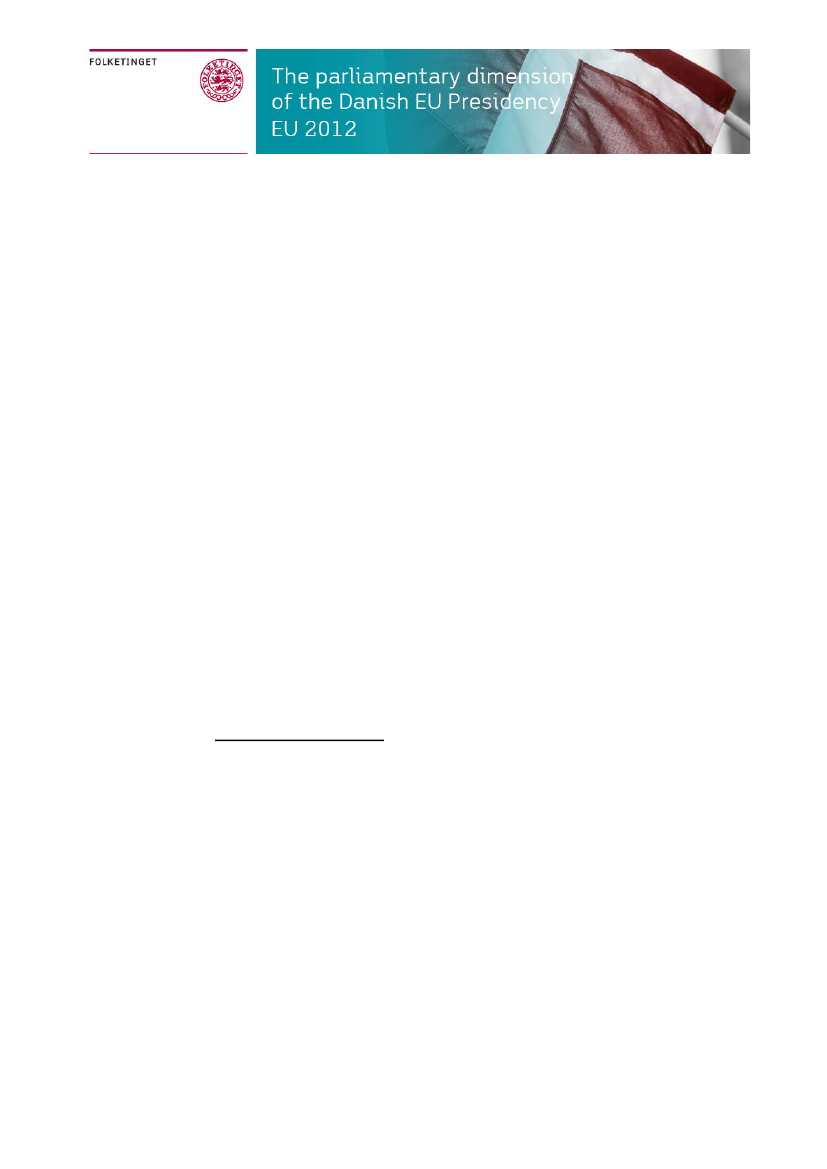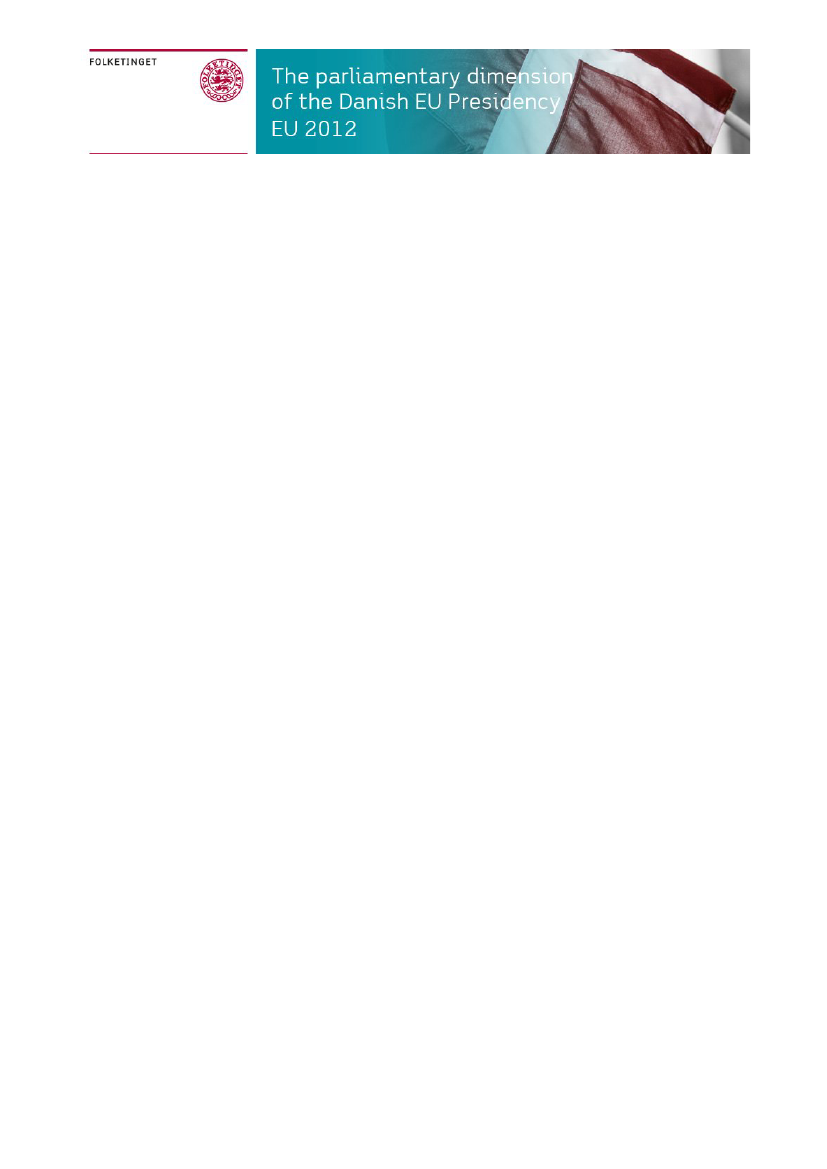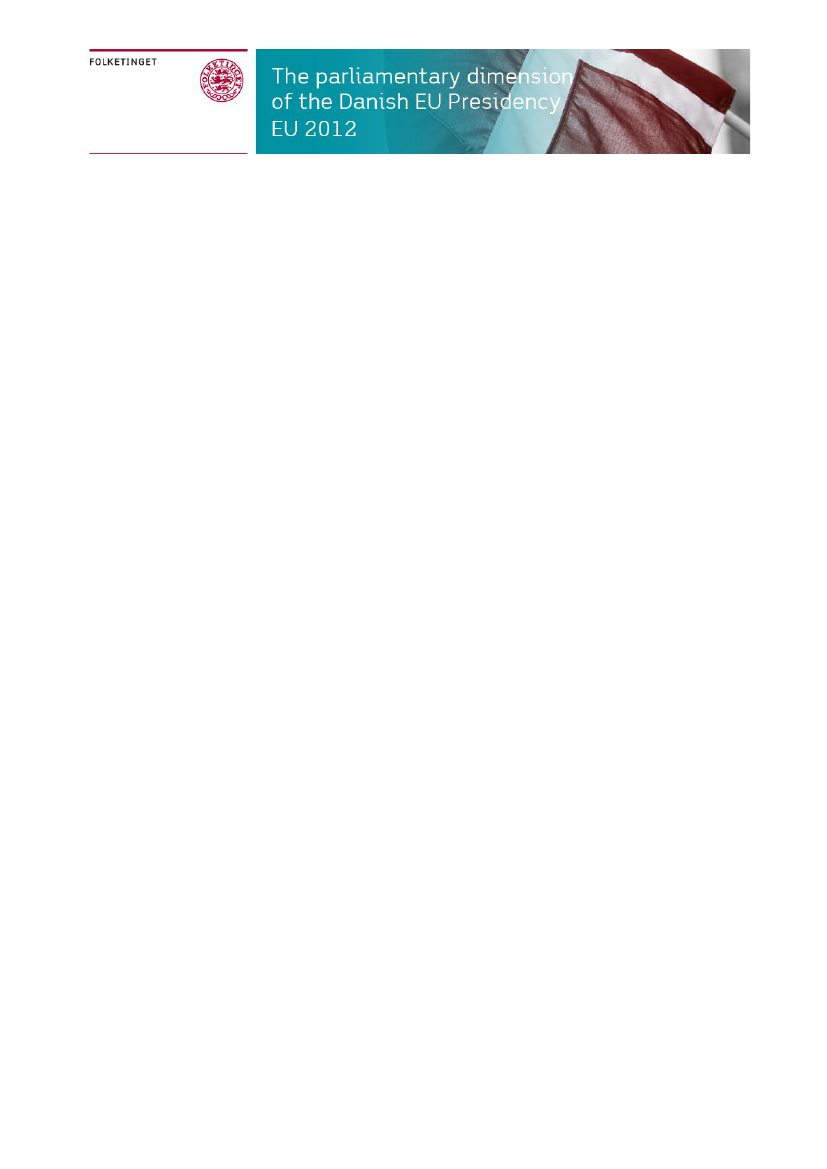Miljøudvalget 2011-12, Udenrigsudvalget 2011-12
MIU Alm.del Bilag 362, URU Alm.del Bilag 210
Offentligt



Chairpersons Meeting for Environment and Foreign Affairs Committees
The road to Green Growth and sustainable development
May 14-15 2012
Concluding remarks
Ladies and gentlemen,Our meeting is coming to an end. Before we go to lunch, please, allow me to give aquick summary of the discussions we have had these last two days.Yesterday and this morning were devoted to the perspectives for the Rio+20Conference.Our speakers agreed that the up-coming Rio conference takes place on a verydifferent back drop from 20 years ago. The world today is much moreinterdependent than in 1992, and economic, social and environmental challengesare intertwined.The speakers also agreed that the concrete ways to achieve sustainabledevelopment were many. (We saw examples of urban planning that were notsustainable). But making growth green is unavoidable given the natural resourcesavailable.The importance of green growth to be inclusive was emphasized. Otherwise greengrowth will not be sustainable. And to ensure green growth, polluting andconsumption must be priced correctly. Emission trading schemes in the EU andMexico were examples that were mentioned. Facing out fossil fuel subsidies wasanother example. To help get the price right it was underscored that Rio+20 shouldend up with the decision to go beyond GDP, and start systematically incorporatingnatural assets into national accounts. Not least to get finance ministers on board asmany of you remarked.1
Furthermore, the speakers and many of you agreed that the key players at Rio+20are different from 20 years ago with much more influence but also responsibilityresting with the growing economies in for instance Asia and Latin America.Hence the role of the EU at Rio+20 is also different. Several of you and some of thespeakers mentioned the necessity of Europe speaking with one voice – meaningdelivering the same message in as many places as possible – and the need to findnew alliance partners. Others mentioned the importance of the EU acting as rolemodel to push forward green growth. While others again raised the question of up-front costs, particularly during the present economic crisis. The Commissioner’sresponse - which was echoed by other speakers - was that nothing leads faster tomore jobs in Europe than energy and resource efficiency improvements. Business asusual is just not possible anymore.Finally, for Rio+20 to be a success, the conference must focus on deliverables. Hereaccess to sustainable energy for all was mentioned as an example.Today’s debate has primarily dealt with resource efficiency and the vision for theEU’s 7thenvironmental action programme.We heard from a Danish tech company that innovative solutions are out there, butthat stronger EU regulation is needed to deal with the water and energy challengesand make sure European companies are first movers in the global market. Forinstance, the Water Framework Directive is not strong enough to drive waterefficiency and thus prevent today’s massive water loss and reduce energy use.We heard about how the high degree of linkages among the resource challenges,underscoring the need for an integrated approach to these. Clever regulation at EUlevel was discussed, including a move to green public procurement. As was the roleof civil society and NGO’s. And as an example of a low hanging fruit on the EU levelthe energy efficiency directive was mentioned again.We also heard the Danish presidency outlined three wishes for the 7thEAP: 1) betterimplementation and strengthening of existing policies 2) new policies focused onurban development, biodiversity, chemicals and nano-materials and 3)
2
transformation of production and consumption patterns through development of aEuropean Single Market for sustainable growth.From the European Parliament’s Environmental Committee’s Jo Leinen we heardthat the next EAP should be an overarching and coherent sustainability programme.I hope that the Parliament’s resolution on a more coherent road map is what we willcome to deal with, and that we will have a vision for 2020 and 2050 that will beclear.We also heard from McKinsey Research that we are in a new era of resource andcircular economy. We heard that we should adapt an integrated approach thatstrengthen market signals, address market failures and create long term resilience.This also means changing consumer patterns.Last but not least speakers from today and yesterday emphasized the role ofnational parliaments and national legislation as very important in securing the publicattention on and progression of the green growth agenda. We are all ambassadorsof the environment. But it has to be as part of the sustainable development agenda.Remember that the minister asked to mail your good practical examples of whatgreen economy can be to show the world that this debate is not about creating newbarriers. This way we can all go to Rio with good examples and as good ambassadorsfor the environment.
3



